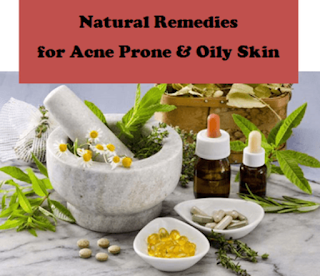Acne is one of the most common skin concerns affecting millions worldwide. While there are countless over-the-counter treatments and prescription options available, many people prefer a more natural approach. If you're looking to soothe acne-prone skin without harsh chemicals, you're in the right place. Below are the most effective natural remedies for acne-prone skin that are backed by both tradition and science.
1. Tea Tree Oil
Known for its antibacterial and anti-inflammatory properties, tea tree oil is a powerhouse in natural acne treatment. It helps reduce redness, swelling, and the bacteria that cause acne.
How to use:
Dilute a few drops of tea tree oil in a carrier oil (like jojoba or coconut oil) and apply directly to pimples using a cotton swab.
2. Aloe Vera
Aloe vera is a natural soothing agent that hydrates the skin while reducing inflammation and promoting healing. It’s especially beneficial for calming irritated or sunburned skin, and it works wonders on acne too.
How to use:
Use fresh aloe gel from the plant or a 100% pure aloe vera gel. Apply to clean skin twice a day.
3. Honey and Cinnamon Mask
Both honey and cinnamon have strong antibacterial properties. Together, they form a potent mask that can fight acne-causing bacteria and reduce inflammation.
How to use:
Mix 2 tablespoons of raw honey with 1 teaspoon of cinnamon. Apply the mixture to your face and leave it on for 10–15 minutes before rinsing off with warm water.
4. Apple Cider Vinegar (ACV)
ACV contains acetic acid, which has antibacterial and antifungal properties. It helps balance the skin’s pH and can reduce excess oil production.
How to use:
Dilute 1 part ACV with 3 parts water. Apply it with a cotton pad like a toner, avoiding sensitive areas. Always patch-test first to avoid irritation.
5. Green Tea
Rich in antioxidants, green tea can help reduce inflammation and fight bacteria on the skin. It also reduces sebum production, making it ideal for oily and acne-prone skin.
How to use:
Brew green tea and let it cool. Apply it to the skin with a cotton ball or use it as a face mist. You can also use green tea extract products for a more concentrated effect.
6. Witch Hazel
This plant-derived astringent helps remove excess oil, soothe irritation, and shrink pores. It’s often used as a natural toner for acne-prone skin.
How to use:
Apply witch hazel to your face with a cotton pad after cleansing. Look for alcohol-free formulas to avoid drying out your skin.
7. Turmeric
Turmeric’s active compound, curcumin, has anti-inflammatory and antimicrobial benefits. It can help reduce acne lesions and even out skin tone.
How to use:
Mix turmeric powder with honey or yogurt to create a paste. Apply it to affected areas and leave it on for 10–15 minutes before rinsing off.
Tips for Using Natural Remedies Safely
-
Always patch-test new ingredients before applying them to your face.
-
Use remedies consistently, but avoid overdoing it—natural doesn’t always mean gentle for all skin types.
-
Combine remedies with a healthy skincare routine: gentle cleanser, non-comedogenic moisturizer, and sunscreen.
Final Thoughts
Natural remedies can be a great addition to your skincare routine, especially for those with sensitive or acne-prone skin. While results may take time, consistency and patience are key. If acne persists or worsens, consult a dermatologist for personalized advice.
By using natural remedies for acne-prone skin, you can support your skin’s healing process with ingredients that are often gentler and more sustainable.

0 Comments
Post a Comment